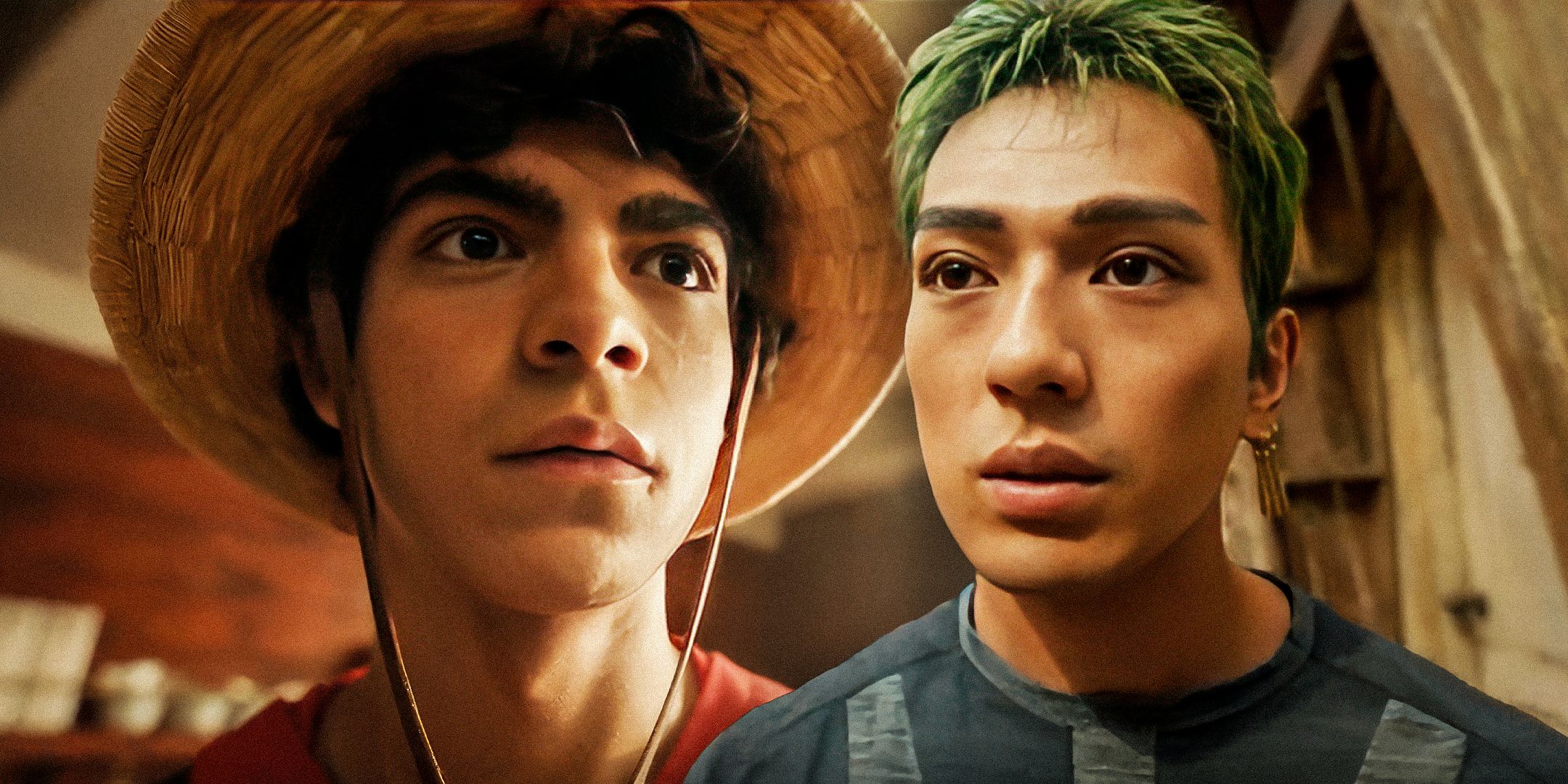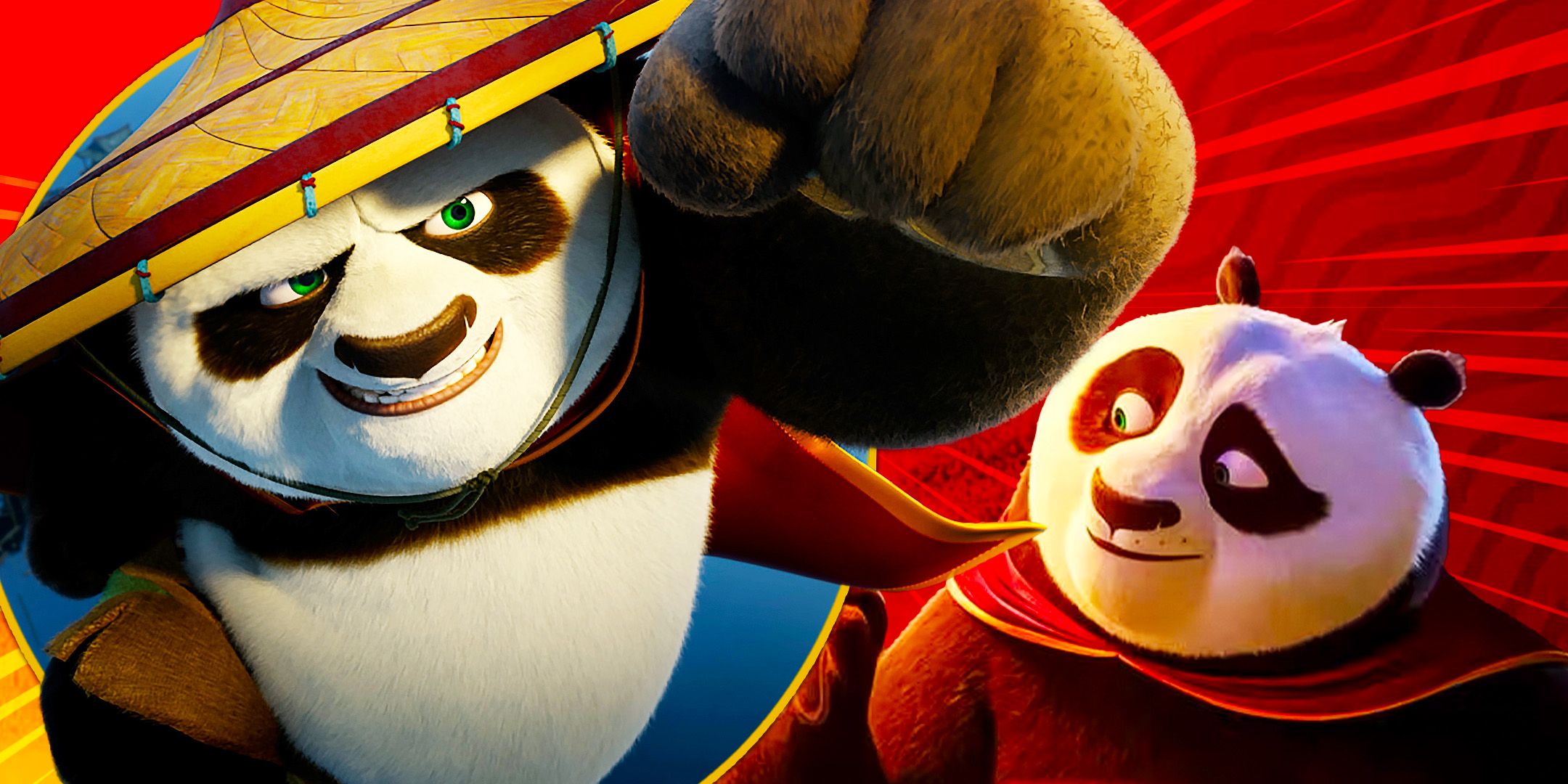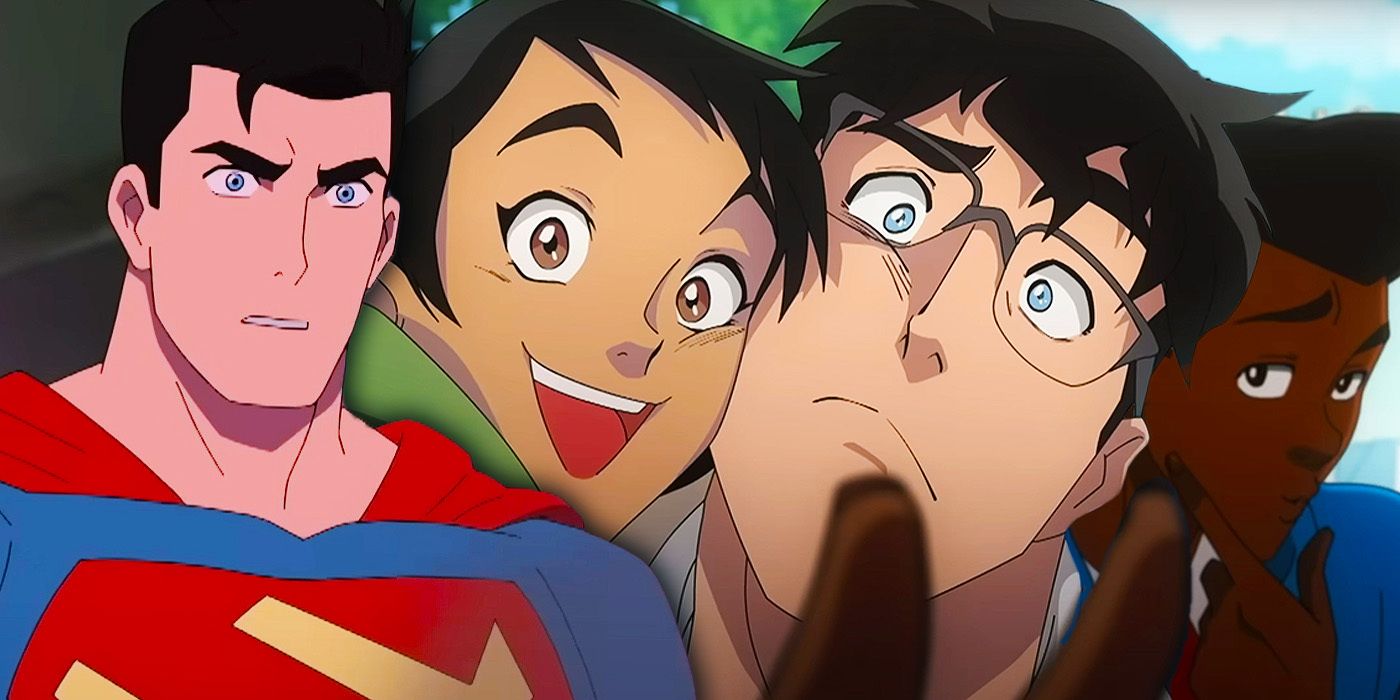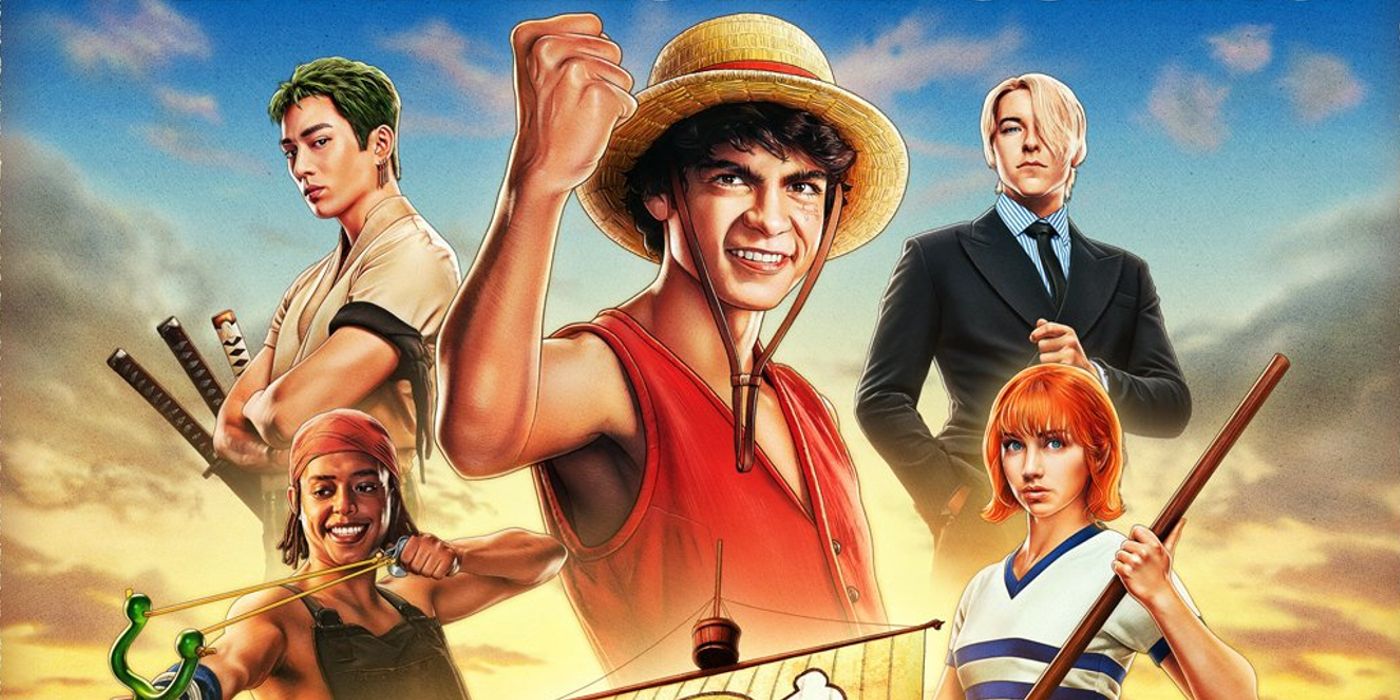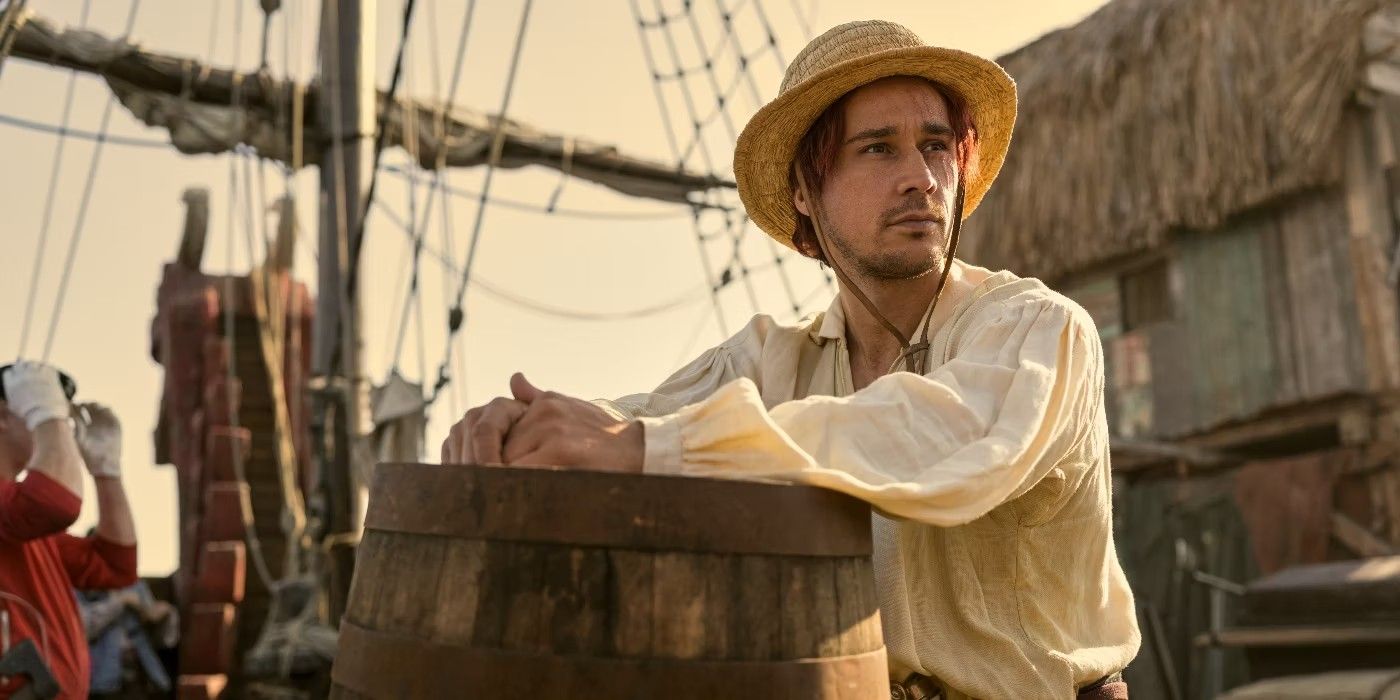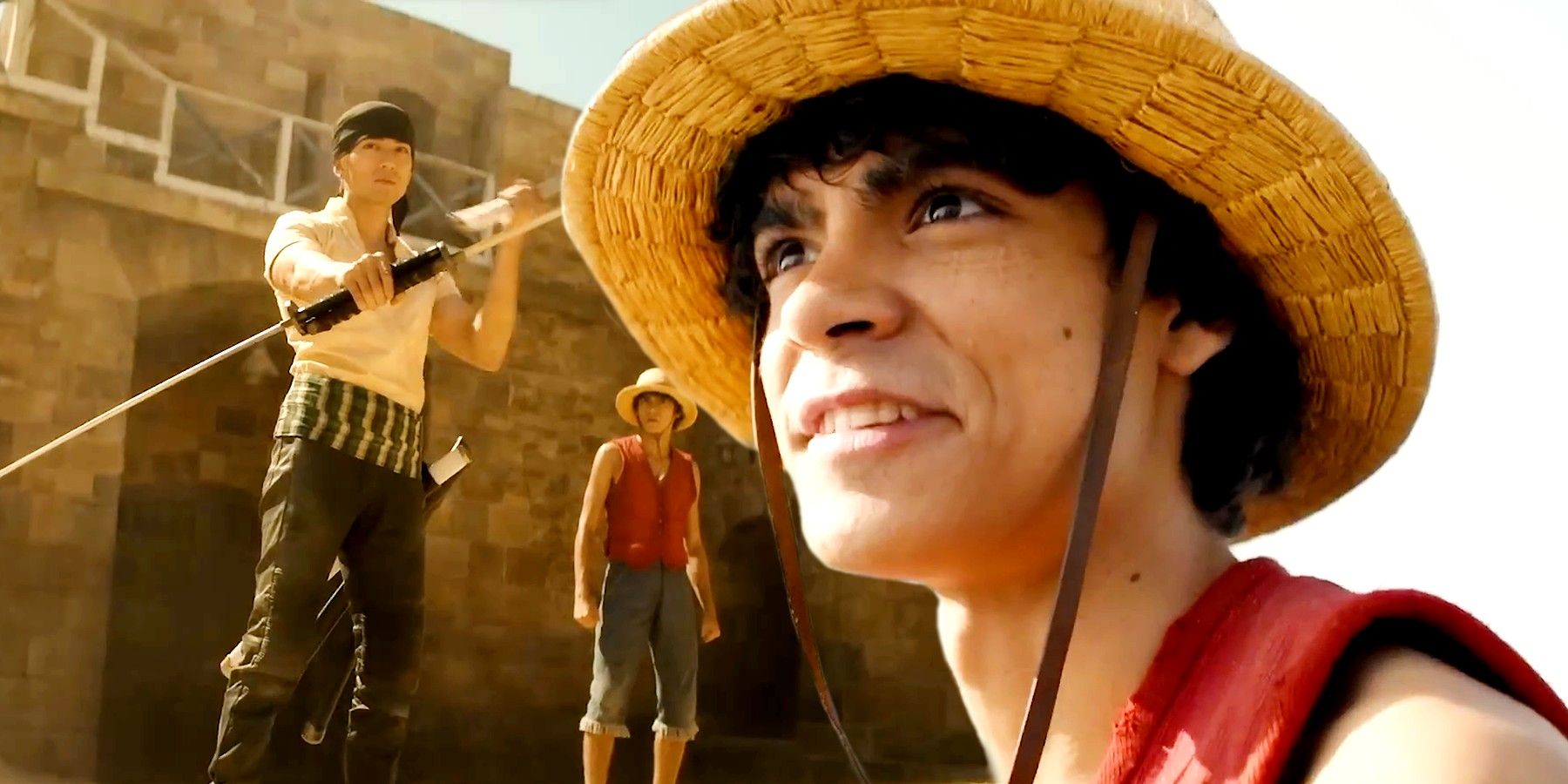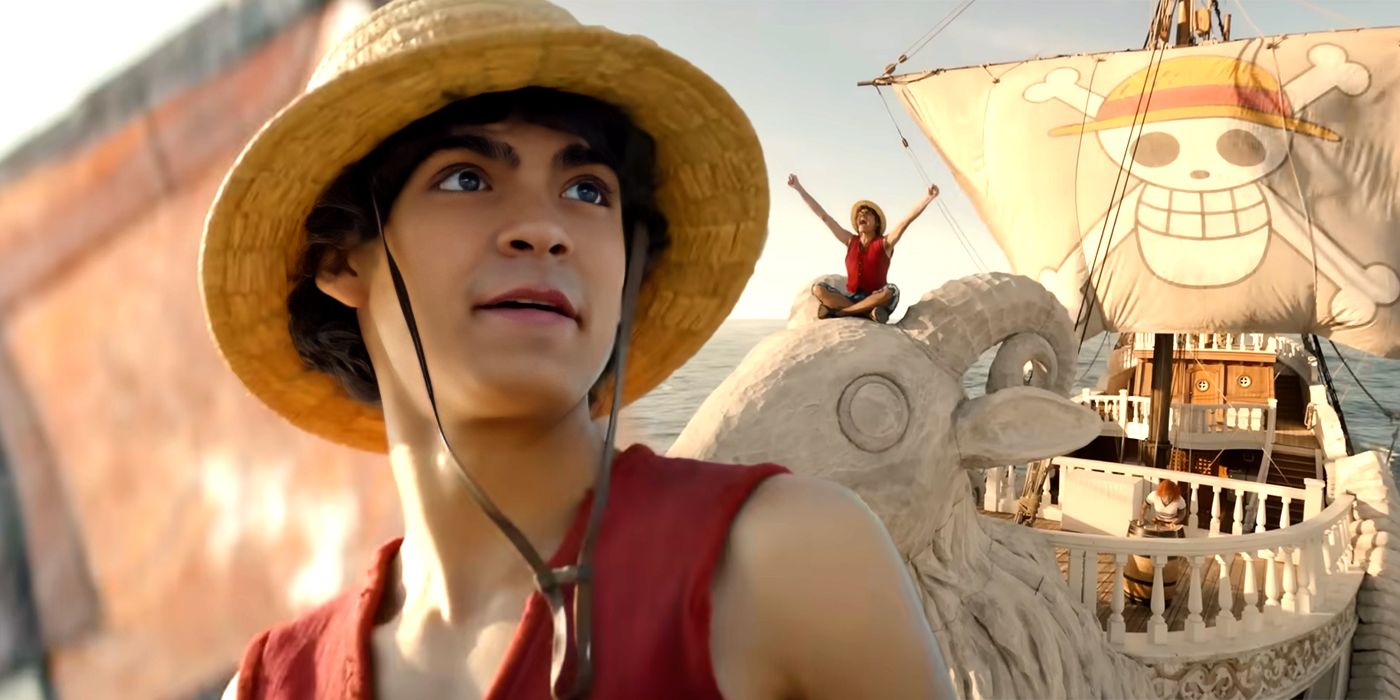Warning: SPOILERS for One Piece season 1!
Summary
- Executive producers Steven Maeda and Matthew Owens made the seemingly impossible adaptation of One Piece to live-action on Netflix a reality.
- Steven Maeda approached the project with professionalism, love, and respect for the source material, after quickly becoming a fan of the manga/anime series.
- The biggest challenge was finding the balance between satisfying hardcore fans of One Piece and roping in new viewers, while also making the show enjoyable for both. It was a daunting responsibility for Maeda due to the passionate fan base.
Fans of One Piece who will enjoy watching their favorite manga/anime universe come to life on Netflix have to thank the passion and dedication of Steven Maeda and Matthew Owens, the two showrunners, writers, and executive producers who managed to do something that many people believed to be impossible. The epic saga created by Eiichiro Oda was thought to be impossible to adapt to live action, especially after the lukewarm reception that Cowboy Bebop had.
However, Steven Maeda is surely not someone who is afraid of stepping up to a challenge. With a career as a writer and producer spanning more than two decades, and having worked on milestones of TV history such as The X-Files and Lost, Steven approached this new, daunting enterprise of One Piece with professionalism and, most importantly, incredible love and respect for the source material. One Piece is a live-action pirate adventure created in partnership with Shueisha and produced by Tomorrow Studios and Netflix. Eiichiro Oda, Marty Adelstein, and Becky Clements also executive produce.
Screen Rant had the pleasure of talking to him about One Piece on Netflix and what fans should expect from it. Editor's Note: This interview was conducted during the 2023 WGA and SAG-AFTRA strikes, and the show covered here would not exist without the labor of the writers and actors in both unions.
Steven Maeda Talks One Piece
Screen Rant: What was your first meeting with One Piece?
Steven Maeda: My first meeting, I was approached by Tomorrow Studios, because they had acquired the rights to the story and the underlying IP, and they were looking for someone to write a pilot script for them to do a rewrite to run the show. And so I had a meeting with them and hit it off and loved the material. And that was the beginning. That was a little over four years ago; that was the first time I was involved.
I was a fan before, but I hadn't really dived in deep. I had read a couple of chapters early. But I really didn't understand the true breadth and scope of the world. And so I very quickly got up to speed with the first 100 chapters. And then was so taken, I just said, if there's a way to be a part of this, I've got to do it. And then and then I kept reading, it's like now I'm caught up, I think chapter 1089.
Almost caught up, yes! And what is exactly that drew you to the story? Is there something that particularly resonates with you?
Steven Maeda: I thought it was a wonderful combination, a very unique world, which you don't see that often nowadays in big fantasy, intellectual property and comics and manga. They're there but they're hard to come by, especially the really good ones. And so I was really taken with Oda-san's world. And then the storytelling was so kind of simple and elemental, about a boy who's following his dreams. And who inspires other people to follow their dreams.
I've always said that Luffy's superpower is that he gets other people to remember their dreams and to start following them again. Even more so than the stretchy power that is his superpower. And it was such an important story I thought and such so simple and yet so profound. That, you know, the combination of the action and the world building and the emotion was amazing.
What were the main challenges of adopting such a popular story, and one that comes from such a different medium?
Steven Maeda: Yeah, I would say the biggest challenge was finding the balance. That was the biggest from the get go with the writing, with what stories to tell, and how to tell them and how to break them up over a season because obviously, when the manga was written, it was not with an eye toward an eight-episode television season. And so I had to reframe that and kind of figure out okay, what's a good beginning, middle and end to the season that has really interesting storytelling character arcs and motion.
It was finding that balance, and then also the balance between the hardcore fans who love every moment and every minutia, you know, every detail and minutia of One Piece, but also how do we rope in new fans who have no idea what One Piece is? Who are saying what is this crazy show with a pink pirate ship and a guy with stretchy powers? What's that about? And so the hardest thing and still I think the hardest thing is finding that balance.
From watching the show. I got the impression that you had two goals. One was to make a good and enjoyable for people who don't know what One Piece is. And the other one was to make One Piece fans happy enough that they don't show up to your door with pitchforks.
Steven Maeda: Exactly. I've worked on some popular shows but they had nothing like the fan base of One Piece. People are so passionate and they're so terrified of you know, ruining their favorite manga that, you know, I felt a huge sense of responsibility to them.
Everything that you put in the show had to be approved by Eiichiro Oda first. I'm curious if there is something that Oda sensei initially was not happy about, but you fought for it because you believed it was good and the show needed it, and ultimately you were able to persuade him.
Steven Maeda: There were a couple of things that took some persuading. And if there was something that Oda-san was really, really unhappy with, we found a way to change it. But there were some things that we tried and got into the show that initially, he was a little gun shy about.
One of those was [that] we've structurally moved a couple things up that don't happen until much later chapters. And one of them, for example, was bringing up Garp as a more present character in the first eight episodes; bringing in Koby, bringing Helmeppo, and having that Marine pursuit be present and on the Straw Hats' tail almost from the get go from episode 2. It was a big change, and I thought it was something that we really needed in order to keep the stakes up and let it feel like it wasn't just a fun adventure where we were meeting different antagonists and different villains and pirates but there was an actual kind of organized presence and fearsome presence that was behind Luffy and pursuing. That was definitely a big challenge.
And another one was pulling up Arlong because Arlong doesn't really come in until the Arlong Park chapters. But one of the things that we were able to convince Oda-san [to do] was pulling Arlong up introducing him early, taking him to Baratie, and kind of swapping him with the Don Krieg storyline in a way to make Arlong our big bad of the first season, which I think worked very well.
On the other hand, can you share at least one idea that Oda absolutely shut down, but you wish made it into the show?
Steven Maeda: There were definitely some things that we couldn't do. And we were okay with most of those things. For example, one of the big mandates was no changing the backstory of how someone got a Devil Fruit, and the powers of the Devil Fruit. We don't want to introduce new Devil Fruits, we don't want to change things that are canon, we were always talking about cannon and about how to do fan service. Definitely the Devil Fruit stuff, definitely keeping backstories as pure as possible.
And I would say it was really a process because we did several different versions of the story before we started writing it. Certainly before we started shooting, some of which were a little further away from the manga, and some of which were much closer. We ended up I think, doing the right version of the show, which was a really nice high budget version that was very faithful to the manga without being a one to one copy. Because if you're doing a one to one copy, then what's the point.
This early part of One Piece is all about introducing the Straw Hats, showing their backstories, and telling fans who they are and what they are going to do from now on. Do you have a favorite Straw Hat backstory or moment?
Steven Maeda: I have so many favorites, and I definitely fought very hard for those backstories because they were very expensive to shoot. Going to a new location that you're never going to return to again, is always a very expensive proposition. But I thought it was so important to get the backstories into the show because they inform who the characters are. I think my absolute number one favorite is Luffy and Shanks and the story of how he got that straw hat.
Episode 2 is very much about that that straw hat moment and how important that hat is to Luffy in the present day and the adult version of Luffy. And then the story of how he got the hat, which is really taken, in some places, frame by frame from the manga. And I was so happy that the actors really, really nailed it. It's it's, it tears me up every time I see it. And I hope people feel the same way.
Is there something specific from the source material that you regret not putting into the show either due to runtime constraints or because it was simply not adaptable to live action?
Steven Maeda: Yes. The biggest one for me that we didn't get to do, was Logue Town in the present day, and we needed two more episodes to be able to do it and there wasn't the budget, there wasn't the screen time. And there wasn't room in the eight episodes to do it the way that it deserved to be done. And so we see Logue Town in the very beginning with Rogers' execution. And then, of course, I wanted to come back to Logue Town and just couldn't fit it in the eight episodes. I felt like we were rushing, and was also a very expensive build. And so that's a regret, for sure.
It's fair to say that you set out to do the impossible with this project. Now that you've done the impossible, and you can look back, what were some of the hardest moments in this journey?
Steven Maeda: I think the hardest part was getting the scripts right. Getting them right for Netflix, getting them right for Oda-san, getting them right for us. And it was definitely a journey in trying to find that balance, trying to figure out how much fanservice to pay, where to make changes, are those changes going to be okay, and how to keep alive the emotional content of those scenes. So even if a scene is not exactly as it was in the manga, you still feel the same emotion that you felt when you first read it, whether that's you cry, you laugh, you're excited, thrilled, or scared. The whole point was to try to bring up that emotion. Even if something wasn't a one-to-one, that was a huge challenge.
And then, of course, the production was big. I spent a year in Cape Town, shooting the show, both in the pre-production phase and the production phase. And so it was being on set every single day for the better part of a year to make sure that the show got done right, based on our experiences with the material. And that's not to say that Emma and the other directors didn't have, you know, huge say they're directing the episodes. But it was so helpful to be on set to be able to say "Oh, wait, wait a second. There's a moment here that I think that we can add to or take away from, hey, let's not show that because of this reason." That ability to be on set was priceless, and really enabled me to have a level of control that normally I wouldn't have, if I wouldn't be able to be on set with the show the entire time.
As a showrunner, you must have kept in mind the hard lessons learned by previous live-action adaptations of anime such as Cowboy Bebop or Death Note. How did you try to be different from these shows? And what's the recipe that you found and applied to your show?
Steven Maeda: Yeah, I think that the whole thing that there has never been a successful anime adaptation is a little overblown. It's true, and yet at the same time, those were all different people who were working on their shows, it really wasn't the same group failing again and again and again. I think we just had to have the courage to say, "Hey, you know what, this one's going to be different. And if we pay the right amount of attention to the fan base, and to keeping those Easter egg moments alive and really giving people a lot of the texture of the One Piece manga and some of the anime, then we will be forgiven for the new stuff that's added." And I certainly hope that's the case.
Because, again, we never set out to do a one-to-one, but wanted to be very faithful to the source material. And at the same time, tell a story that was never intended to be told when Oda-san first wrote the manga, which is an eight-episode TV season, that has to have its own kind of rise and fall, and the manga was never structured that way. So of course, it's not going to have that. So it was finding those kinds of emotional points and the book ends and signposts to be able to kind of direct you through an episode or season rather, of television.
The manga, of course, was created with a weekly release schedule in mind. Do you think that an adaptation of One Piece would have worked better in a previous era of TV, where TV shows had episodes airing every week?
Steven Maeda: My personal opinion is: absolutely. I love weekly drops of shows, I love the way to be able to have the anticipation built week to week, especially in a show that you really love from the beginning. You're so then looking forward to the next week, and the next week after that. And I go crazy over shows that I really like and the episodes aren't out yet, I have to wait. That being said, Netflix is Netflix, and they're doing their thing. And it's been very successful for them. Do I wish that it was being shown on a weekly basis? Absolutely.
You must have had a fair amount of interaction with Oda. What's the most important thing that you learned from him during this project?
Steven Maeda: I would say, just trying to figure out the amount of fealty and loyalty that had to be given to the manga. And look, sometimes when something is adapted, it's very, very faithful. And sometimes it's a radical difference, where it's just you take the idea, and you run with it in a completely different direction. Both types of shows can be successful. With this one, it was clear as we were talking about it, that getting too far away from the source material was not going to be good in any way.
Sure, there were wonderful stories that could be told that are not as close to the manga. But I think that, rightfully so, the fan base would not have accepted those shows, because One Piece is such a beloved source of material. And so I really wanted to, after a lot of trial and error, honor what Oda-san wanted to do, which was to have a version of the show that we felt really good about, and that he felt really good about. And so it was then a matter of lining those things up, and kind of toggling them a little left and a little right and just making sure that even if there's something new in the show it feels genuine. Pray to God the show feels like that because that was the intent.
Is there one funny Oda story you can share with us maybe from his visit to the set or from your personal interactions?
Steven Maeda: You know what, he's a really interesting man. Very challenging, very opinionated, and rightfully so. He's a genius, and he created a wonderful, wonderful world. I've always said this, this is his sandbox, and we just get to play in it and it's a privilege to do so. I don't know that there's a funny story as much as it was always daunting to sit with him or to talk with him on Zoom because he is the creator of the world. And so it definitely felt like there was a huge responsibility that was being handed over. And I very much wanted to honor that responsibility at the same time as telling a great, great season of television.
Speaking of seasons, the first season of the show adapts the "East Blue Arc" from the manga, which is somehow its most grounded part. After that, once the Straw Hats get to the Grand Line, it's all giant monsters, islands in the sky, islands underwater, crazy Devil Fruit powers at every corner. Do you think that it will be possible to adapt all of that in future seasons or is it simply too much for live-action?
Steven Maeda: I think that for One Piece particularly is going to be very difficult to adapt everything, to really do the story justice, and hit every single kind of moment and location and antagonist, I think will be very, very difficult just by virtue of the sheer size and scope of it, not to mention how long it takes to shoot. I mean, it took us a year of shooting after two years of working on story and scripts. And I think that process could certainly be streamlined. But at the same time, it takes a long time. So you know, I can't make any spoilers about future plans but yeah, its a challenge.
If there was one thing that you could say to every person in the world who is about to start watching the show for the first time, what would that be?
Steven Maeda: I would say to jump into it with no expectations, to watch the show for what it is, and just let the world come to you. Because it is so unique and so different from most of the other big epic fantasy shows out there. I think you just have to accept it. I would tell people to enjoy the tone of the show, because the show is fun, and sometimes a little bit goofy, and irreverent, but also very emotional and very heartfelt. And at the core of it is a story about following your dreams, which is something that we all struggle with. And I have always said even four years ago that this was a wonderful story for the times we're in, because it's about hope and optimism and following dreams, which is something that is in scarce supply these days.
About One Piece
Based on Japan’s highest-selling manga series in history by Eiichiro Oda, One Piece is a legendary high-seas adventure unlike any other. Monkey D. Luffy is a young adventurer who has longed for a life of freedom since he can remember. Luffy sets off from his small village on a perilous journey to find the legendary fabled treasure, One Piece, to become King of the Pirates! But in order to find the ultimate prize, Luffy will need to assemble the crew he’s always wanted before finding a ship to sail, searching every inch of the vast blue seas, outpacing the Marines, and outwitting dangerous rivals at every turn.
Check out our other One Piece interviews here:
All 8 episodes of One Piece season 1 are currently available to stream on Netflix.
Source: Screen Rant Plus


